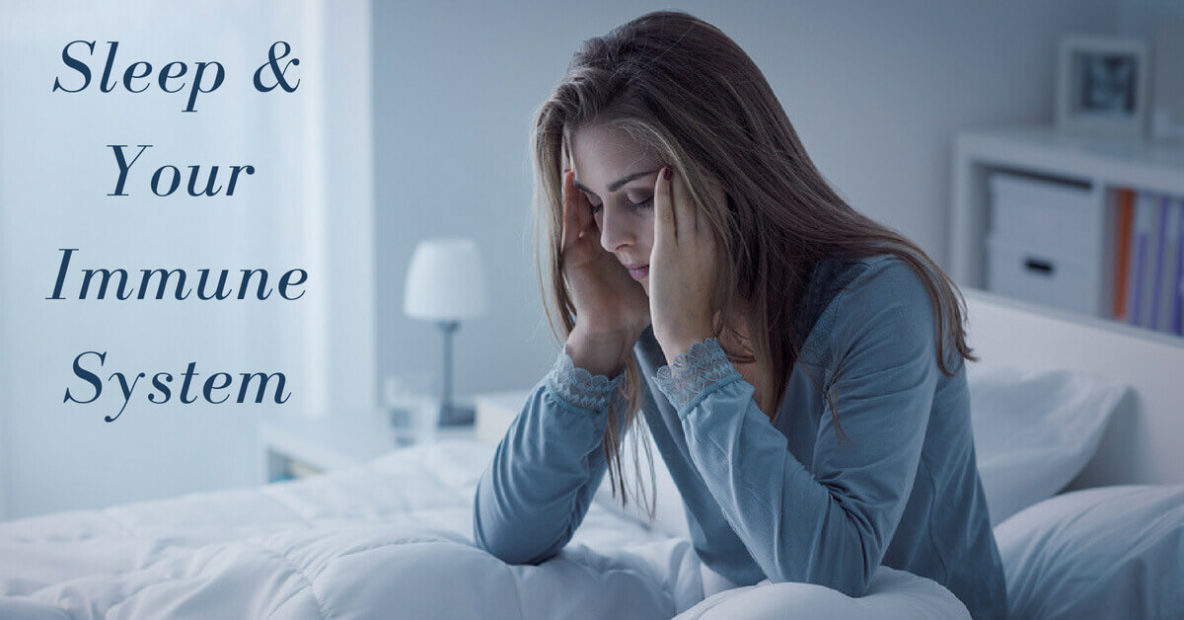Sleep and Your Immune System

- A Promising Paradigm Shift: New Research Challenges the CPAP-First Approach to OSA Treatment - September 5, 2023
- Understanding Sleep Meditation Techniques - July 30, 2021
- How Online Learning Has Affected Sleep for Students - July 13, 2021
You need quality, restful sleep. It’s good for your outlook, it’s physically beneficial, and your immune system needs it, too. If you’re not getting the right sleep, we can help. If you can’t seem to fight off a cold or the flu, it may be due to too little or poor-quality sleep.
You need cytokines
Studies show people who don’t get enough sleep or don’t get quality sleep are more likely to get sick if exposed to a virus like the common cold. Lack of sleep also affects how fast you bounce back when you do get sick.
While you sleep your body’s immune system releases proteins called cytokines. Some of these help you sleep, certain cytokines need to ramp up when have an infection or inflammation or even if you are under stress. Sleep deprivation, either because you are waking up due to sleep apnea, or just too little sleep in general, decreases the production of cytokines. Infection fighting antibodies and cells are also reduced during periods when you aren’t getting enough sleep.
Sleep loss influences the way our body fights off an illness. Our bodies actually fight off an illness with a fever. Studies show fevers tend to rise at night. If we are not sleeping at night, we lose the fever factor and the body finds it tougher to deal with an infection or inflammation. Lack of sleep has been found to be the highest risk to getting a cold – higher than age, high stress levels or smoking.
A recent study showed people who are sleep deprived get less of a benefit from a flu vaccination. A Mayo Clinic sleep specialist says a study shows our immune response is suppressed when we don’t get enough sleep. The immune response is what helps the flu vaccine work – so if you are sleep deprived even if you get a flu vaccine, you may still get the flu and its going to take you longer to get better.
A new study found people who slept six hours a night or less were four times more likely to get sick when exposed to the cold virus.
Sleep fights off disease
Your body needs sleep to fight off infectious diseases. Long term lack of sleep also increases your risks of obesity, diabetes, and heart and blood vessel diseases. Research indicates your body reacts to sleep deprivation by producing what scientists call a c-reactive protein. The c-reactive protein is a marker for inflammation and inflammation plays a role in heart disease. Studies indicate those with insomnia also have another health condition, often serious. There is even a study that linked sleep deprivation to the growth of tumors.
How much is enough?
Some people do better on less sleep than others. If you have a very strong immune system, it may take longer for you to get run down if you are not sleeping. Sometimes a little sleep and a strong cup of coffee are enough – but if you have a weak immune system, you are going to be more prone to infection.
If you don’t get enough sleep
The optimal amount of sleep for most adults is seven to eight hours of sleep each night. This means quality sleep – not waking up from snoring or breathing issues six or seven times a night. Teens need nine to 10 hours of sleep and elementary school children need 10 or more hours of sleep.
And more is not always better. Adults sleeping nine to 10 hours of sleep may find it is harder to fall asleep and it will be more difficult staying asleep.
How to catch up
You can’t catch up on a lack of sleep all at once. Experts say it takes weeks to get that lost sleep back. Starting on a weekend, add an extra hour or two of sleep each night. The best way to do this is to go to bed tired and allow yourself to wake up naturally – no alarm clock! You may need to sleep 10 hours a night at first, but then the amount of sleep you will be getting naturally will regulate to the correct amount.
Get a sleep assessment
If you’ve tried all the suggestions for getting your restful sleep and they haven’t worked, consider having a sleep assessment. Sleep assessments provide valuable information about your sleep patterns and the quality of sleep you get. Sleep conditions, such as sleep apnea, could interfere with a good night’s sleep. To schedule an assessment, contact us at Sound Sleep Medical.
